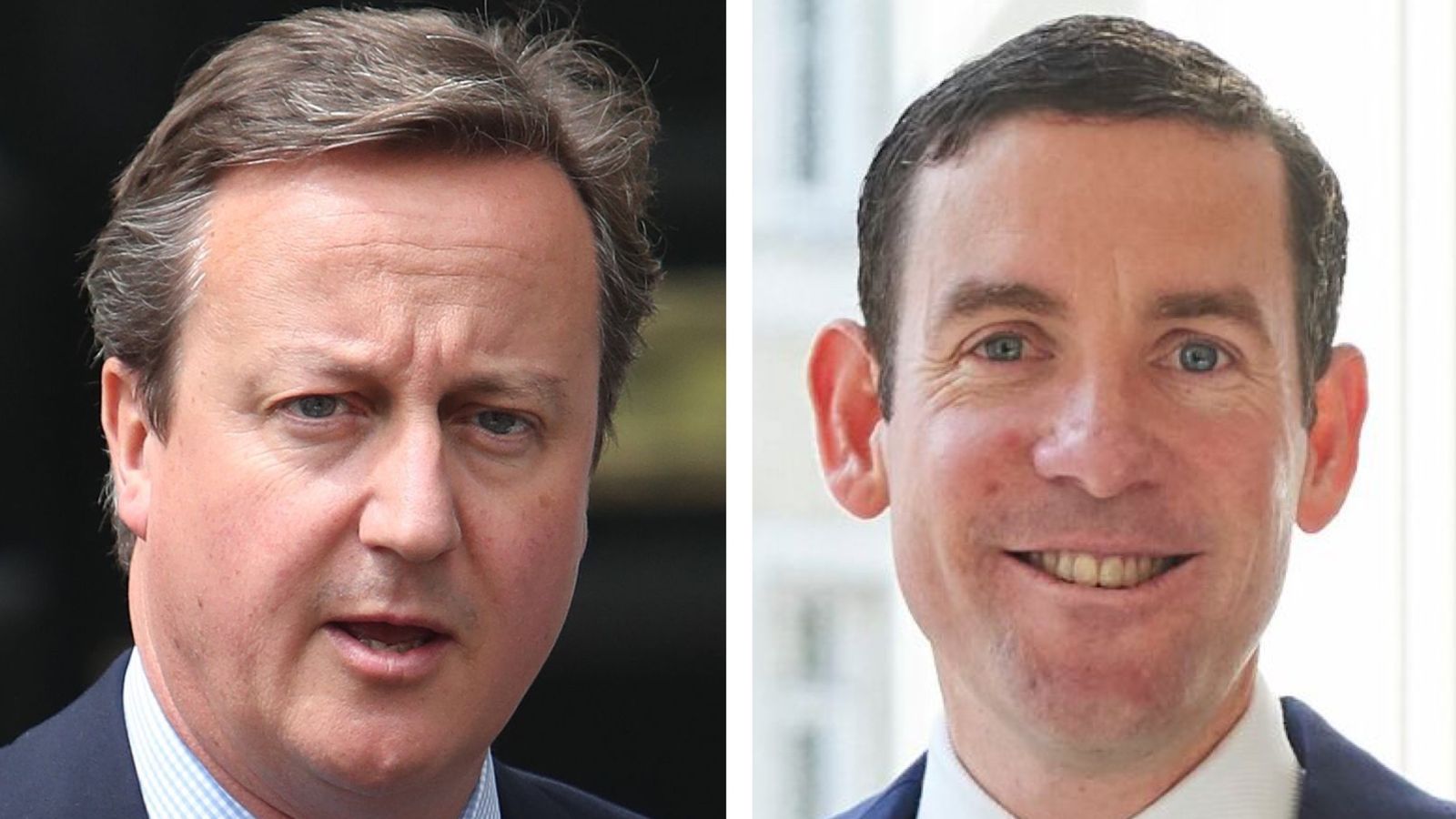David Cameron lobbied the Treasury’s top civil servant on behalf of a financial services firm that later collapsed.
Sir Tom Scholar told a committee of MPs that the former prime minister called him on his work mobile and sent him text messages in March and April 2020 in a bid to get Greensill Capital involved in the government’s COVID-19 support schemes.
Sir Tom, the Treasury’s permanent secretary, said Mr Cameron had his number because he used to work for him and that Greensill “persistently” lobbied the Treasury.
Please use Chrome browser for a more accessible video player
He told the Public Accounts Committee that he believed the department had dealt with the firm’s approaches – including those from the former prime minister – in a “completely appropriate” fashion.
Second permanent secretary Charles Roxburgh told the same committee he had nine virtual meetings with the firm’s founder Lex Greensill and Bill Crothers, who used to be head of government procurement and went on to join the company.
He said the proposals put forward by Greensill Capital were rejected after being looked at by officials.
Mr Cameron started working for Greensill in 2018 and approached a number of figures on behalf of the company, including government ministers.
He sent multiple text messages to the personal phone of Chancellor Rishi Sunak and approached two junior treasury ministers in a bid to get Greensill access to an emergency coronavirus loan scheme.
Mr Cameron also arranged a “private drink” between company founder Lex Greensill and Health Secretary Matt Hancock to talk about a payment scheme later rolled out in the NHS.
Please use Chrome browser for a more accessible video player
Mr Cameron has said he broke “no codes of conduct and no government rules”, but accepted “communications with government need to be done through only the most formal of channels, so there can be no room for misinterpretation”.
The disclosures have sparked a range of inquiries into Greensill and the wider system of lobbying.
Sir Tom said Mr Cameron had got in touch with him over a pitch from Greensill to join the government’s COVID Corporate Financing Facility (CCFF).
“If a former minister that I have worked with asks to talk to me, I will always do that,” he told MPs.
Please use Chrome browser for a more accessible video player
“The call I took from Mr Cameron was not a substantive discussion of the proposal.
“It was simply a call to draw it to my attention. I said ‘thank you very much, this is something we are looking at. Charles Roxburgh is the person leading on it’.
“We were approached quite persistently from this company. We listened to what they said.
“We analysed it, we tested it and in the end, despite them submitting a series of successive proposals, we decided to reject them all.
“I think that is a completely appropriate way of dealing with the matter.”
Please use Chrome browser for a more accessible video player
Conservative MP Sir Geoffrey Clifton-Brown asked the civil servants why they dedicated so much time on proposals he said were “dodgy” and sounded “like a Ponzi scheme”.
Sir Tom said the Treasury had been under “immense pressure” at the time to do more to help businesses.
“Everybody said we were too slow, not doing enough, should be more ambitious, so we were investigating a whole series of ways in which we could support the flow of credit to businesses,” he said.
Mr Roxburgh said Greensill’s request to join the CCFF was dismissed because it did not meet the Treasury’s criteria and he did not feel under any “inappropriate pressure” from ministers when considering it.
The PAC is looking at whether the existing rules and penalties regarding lobbying are tough enough.
Setting out its terms of reference earlier this week, the committee said the collapse of Greensill and disclosures about its relationships with ministers and Whitehall “have raised significant concerns about the propriety of governance in this country” which “risks undermining public trust”.






















